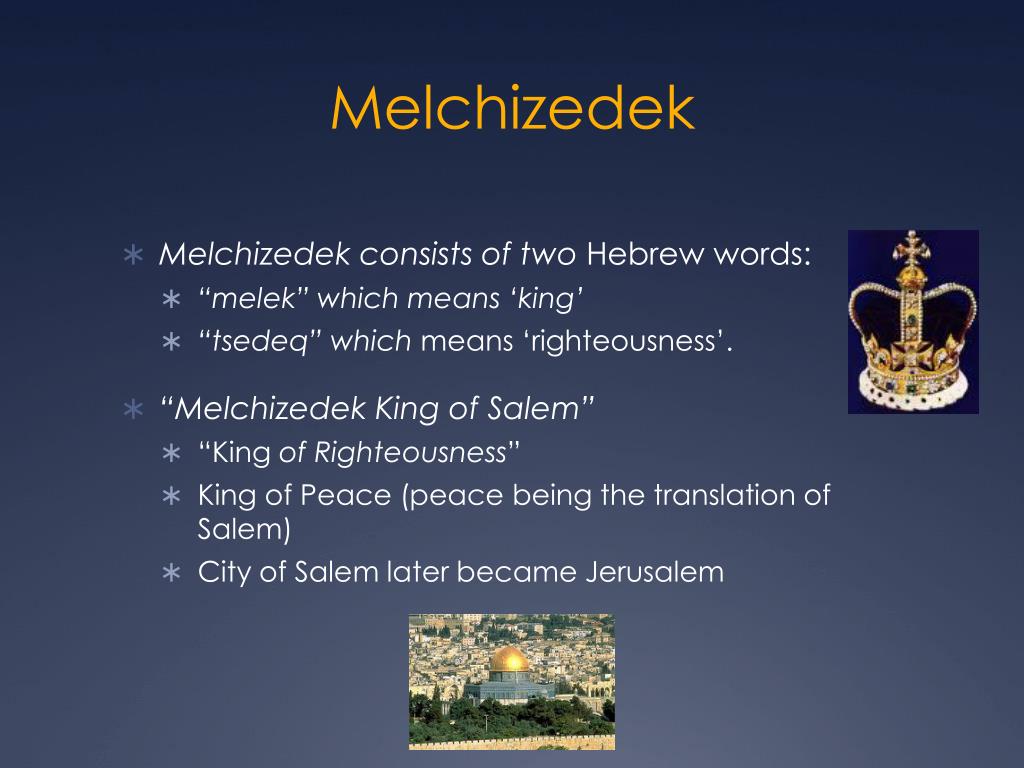

The Levitical order only being imperfect types and shadows, a new order was needed to bring about fulfillment of the types and shadows. The author of Hebrews takes the Old Testament passages (or lack thereof) regarding Melchizedek to skillfully and masterfully weave into a reasoned typological tapestry how the priesthood of Christ is outside the Levitical order, it is of a different sort. In Psalm 110:4, the Lord promises, makes an oath, that the coming Messiah “will be a priest after the order of Melchizedek.” The Messianic Psalm and the author of Hebrews, by calling the Messiah/Christ a “high priest after the order of Melchizedek,” unites the qualities of both an expiatory priesthood and kingly majesty, which was different from the Levitical order where no priest could be a king.

The reader discovers Melchizedek was both a priest and a king, and Abram, recognizing his kingly and priestly character, gave him a tithe of all his “goods.” However, he vanished from Scripture as quickly as he appeared, his name not reappearing again until Psalm 110, a Messianic Psalm. And he blessed him, and said, Blessed be Abram of the most high God, possessor of heaven and earth: And blessed be the most high God, which hath delivered thine enemies into thy hand. Genesis 14:18-20 reads, “And Melchizedek king of Salem brought forth bread and wine: and he was the priest of the most high God.

Found in Genesis 14, he appears to Abram (Abraham) after he had returned victorious, though weary, from the heat of battle. Melchizedek bursts upon the pages of the Old Testament, like a refreshing breeze on a hot summer day. The reader having then both sides can make up their own minds. While my position on who Melchizedek was/is set forth in the last post, the following is written from the position that Melchizedek was the foreshadowing of a greater reality. I have always believed one can best articulate their own position on an issue if they understand the opposing position. Someone asked me if I would write a post from the position of presenting Melchizedek as a type of Christ and Christ being the antitype or the fulfillment of what Melchizedek foreshadowed. Of course, there are an equal number of biblical scholars who see Melchizedek as only a type of Christ. ( Writers Note: In my previous post MELCHIZEDEK: TYPE OR THEOPHANY? I wrote on why I contend Melchizedek was a Christophany, he was a preincarnate appearance of Jesus Christ in the Old Testament.


 0 kommentar(er)
0 kommentar(er)
